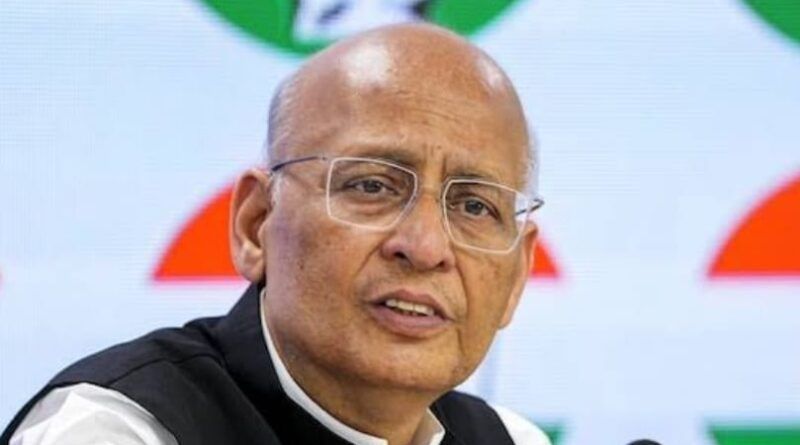Why the legal architecture of defection must be reimagined

- Abhishek Manu Singhvi
Nowhere is the saying “the law is an ass” more validated than in the shenanigans of defectors and amidst the legal acrobatics surrounding the 10th Schedule. Nowhere is the gap between preaching and practice more pronounced and nowhere in constitutional law is human venality more self evident. Poor Gaya Lal, who twice changed parties on the same day in 1967, would blush if he saw the sophisticated present-day devices used to circumvent the 1984 anti-defection law. Constitutional law is no match for Indian ‘jugaad’.
The ill-repute of this subject does not arise from lack of legal principles or absence of clarity. After endless delays by the Speaker, the Supreme Court’s (SC’s) Manipur judgment declared that three months is the ideal time limit for Speakers to decide disqualification petitions. The Constitution was amended to eliminate the concept of a split, and despite the common misconception, even a two-third breakaway group is liable to be disqualified unless it merges with another political party. The Speaker’s order is subject to judicial review and the 10th Schedule is not an unreasonable restriction on free speech (Kihoto). Voluntary giving up of membership is not limited to resignation but can be inferred from myriad forms of conduct (Ravi Naik). An expelled member continues as an unattached member of his old political party and will not attract the anti-defection law unless he joins a new party (Vishwanathan). Defiance of whip by absenting oneself or being present and voting in violation of it as well as severe criticism of the government and seeking its change incurs disqualification. Reports showing dissidents joining or acting in concert with other political parties is culpable conduct. Remaining incommunicado, failure to attend legislature party meetings, threats to topple the government, all constitute voluntary giving up of membership (Naik and Balasaheb Patil). While the Speaker must normally follow the seven or 14-day notice period provided in the assembly rules, he is entitled to shorten it and even two or three days notice before disqualification has been upheld (Naik and Patil). Writing to the Governor to call upon the Leader of the Opposition to form the government and even travelling together in a bus to the Governor with the Opposition incurs the penalty (Rajendra Rana and Subodh Uniyal).
The reality is radically different. First, most potential defectors write a prior letter expressing no confidence in the Speaker and defect the next day. A loosely drafted paragraph in Nabam Rebia is invoked to argue that the Speaker is himself disqualified to adjudicate the disqualification petitions of those who have lost confidence in him. This interpretation of Rebia is pending reconsideration before a larger bench of the SC.
Second, the Speaker, the sole authorised entity to adjudicate complaints of disqualification, is nevertheless a member of the ruling party and almost never rises above his party affiliation. He dithers endlessly and does not decide the pending complaints if they are from the Opposition and in relation to those who have defected to the ruling party to which he himself belongs. This enables the defectors to reap the benefits of their defection by voting against their original party.
Third, the Speaker decides the complaint with lightning speed if the complainants are from his own party and disqualifies the defectors promptly, maintaining his party in power through an artificial majority created by him.
Fourth, a more recent innovation involves the potential defectors (say A), a day prior to defection, clandestinely filing an application with the Election Commission, claiming to be the real party and seeking the symbol of the party from which they have defected (say B). While the disqualification dispute is delayed by a friendly Speaker, the EC hearings are fast-tracked. The EC, especially under the influence of a domineering central government, eventually applies only the legislative majority test to hold A to be the real party. It needs no rocket science to see that a test based on counting legislators is patently fallacious since they include all the defectors. Meanwhile, the overwhelming majority of the rank and file continue to support the original party. Had the organisational test been applied, as mandated by the SC in Shiv Sena, the original party alone can get the name and symbol. By applying only the legislative party test, the EC actually sanctifies the defection, giving the party name and symbol to the defectors.
Fifth, engineered resignations of legislators in a ruling dispensation by any desperate opposition promising them lucrative ministerships if they ensure that the Opposition comes to power, has its own charm. These “toppling agents” are entitled to at least six months as ministers in the new government, even if they fail to get re-elected in that period.
The common man is disgusted with such duplicity. I would, therefore, advocate complete abolition of the 10thSchedule and its replacement with a one paragraph law — anyone who changes party affiliation must mandatorily resign and seek re-election. Second, such a person should be prohibited from holding ministership without re-election. Third, there would be no need for a Speaker in such a simple system. If a Speaker is necessary for any adjudicatory role, let us stop the use of such oxymorons like impartial or independent umpire.
The Speaker’s umbilical cord with his party can never be wished away and judicial homilies to the contrary must stop. The only solution is to make it an unchangeable convention and if necessary, solidify it by constitutional amendment. Under this, all political parties or a majority of them will select a Speaker before the elections and declare that no party will put up a candidate from his/her constituency. This alone can impart a degree of credibility, moral and political authority to the Speaker, conspicuous by its absence today. Let us all join together to see that the law is not called an ass except very, very rarely.
The writer is a jurist and national spokesperson, INC.
Courtesy: The Indian Express







